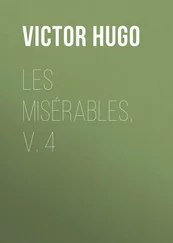Array RMB - Les Misérables
Здесь есть возможность читать онлайн «Array RMB - Les Misérables» — ознакомительный отрывок электронной книги совершенно бесплатно, а после прочтения отрывка купить полную версию. В некоторых случаях можно слушать аудио, скачать через торрент в формате fb2 и присутствует краткое содержание. Жанр: unrecognised, на английском языке. Описание произведения, (предисловие) а так же отзывы посетителей доступны на портале библиотеки ЛибКат.
- Название:Les Misérables
- Автор:
- Жанр:
- Год:неизвестен
- ISBN:нет данных
- Рейтинг книги:3 / 5. Голосов: 1
-
Избранное:Добавить в избранное
- Отзывы:
-
Ваша оценка:
- 60
- 1
- 2
- 3
- 4
- 5
Les Misérables: краткое содержание, описание и аннотация
Предлагаем к чтению аннотацию, описание, краткое содержание или предисловие (зависит от того, что написал сам автор книги «Les Misérables»). Если вы не нашли необходимую информацию о книге — напишите в комментариях, мы постараемся отыскать её.
Contains Active Table of Contents (HTML) and in the end of book include a bonus link to the free audiobook.
Sensational, dramatic, packed with rich excitement and filled with the sweep and violence of human passions, LES MISERABLES is not only superb adventure but a powerful social document. The story of how the convict Jean-Valjean struggled to escape his past and reaffirm his humanity, in a world brutalized by poverty and ignorance, became the gospel of the poor and the oppressed.
Les Misérables — читать онлайн ознакомительный отрывок
Ниже представлен текст книги, разбитый по страницам. Система сохранения места последней прочитанной страницы, позволяет с удобством читать онлайн бесплатно книгу «Les Misérables», без необходимости каждый раз заново искать на чём Вы остановились. Поставьте закладку, и сможете в любой момент перейти на страницу, на которой закончили чтение.
Интервал:
Закладка:
As will be perceived from this letter, these two women understood how to mould themselves to the Bishop's ways with that special feminine genius which comprehends the man better than he comprehends himself. The Bishop of D——, in spite of the gentle and candid air which never deserted him, sometimes did things that were grand, bold, and magnificent, without seeming to have even a suspicion of the fact. They trembled, but they let him alone. Sometimes Madame Magloire essayed a remonstrance in advance, but never at the time, nor afterwards. They never interfered with him by so much as a word or sign, in any action once entered upon. At certain moments, without his having occasion to mention it, when he was not even conscious of it himself in all probability, so perfect was his simplicity, they vaguely felt that he was acting as a bishop; then they were nothing more than two shadows in the house. They served him passively; and if obedience consisted in disappearing, they disappeared. They understood, with an admirable delicacy of instinct, that certain cares may be put under constraint. Thus, even when believing him to be in peril, they understood, I will not say his thought, but his nature, to such a degree that they no longer watched over him. They confided him to God.
Moreover, Baptistine said, as we have just read, that her brother's end would prove her own. Madame Magloire did not say this, but she knew it.
Chapter 10 The Bishop in the Presence of an Unknown Light
At an epoch a little later than the date of the letter cited in the preceding pages, he did a thing which, if the whole town was to be believed, was even more hazardous than his trip across the mountains infested with bandits.
In the country near D—— a man lived quite alone. This man, we will state at once, was a former member of the Convention. His name was G——
Member of the Convention, G—— was mentioned with a sort of horror in the little world of D—— A member of the Convention—can you imagine such a thing? That existed from the time when people called each other thou, and when they said "citizen." This man was almost a monster. He had not voted for the death of the king, but almost. He was a quasi-regicide. He had been a terrible man. How did it happen that such a man had not been brought before a provost's court, on the return of the legitimate princes? They need not have cut off his head, if you please; clemency must be exercised, agreed; but a good banishment for life. An example, in short, etc. Besides, he was an atheist, like all the rest of those people. Gossip of the geese about the vulture.
Was G—— a vulture after all? Yes; if he were to be judged by the element of ferocity in this solitude of his. As he had not voted for the death of the king, he had not been included in the decrees of exile, and had been able to remain in France.
He dwelt at a distance of three-quarters of an hour from the city, far from any hamlet, far from any road, in some hidden turn of a very wild valley, no one knew exactly where. He had there, it was said, a sort of field, a hole, a lair. There were no neighbors, not even passers-by. Since he had dwelt in that valley, the path which led thither had disappeared under a growth of grass. The locality was spoken of as though it had been the dwelling of a hangman.
Nevertheless, the Bishop meditated on the subject, and from time to time he gazed at the horizon at a point where a clump of trees marked the valley of the former member of the Convention, and he said, "There is a soul yonder which is lonely."
And he added, deep in his own mind, "I owe him a visit."
But, let us avow it, this idea, which seemed natural at the first blush, appeared to him after a moment's reflection, as strange, impossible, and almost repulsive. For, at bottom, he shared the general impression, and the old member of the Convention inspired him, without his being clearly conscious of the fact himself, with that sentiment which borders on hate, and which is so well expressed by the word estrangement.
Still, should the scab of the sheep cause the shepherd to recoil? No. But what a sheep!
The good Bishop was perplexed. Sometimes he set out in that direction; then he returned.
Finally, the rumor one day spread through the town that a sort of young shepherd, who served the member of the Convention in his hovel, had come in quest of a doctor; that the old wretch was dying, that paralysis was gaining on him, and that he would not live over night.—"Thank God!" some added.
The Bishop took his staff, put on his cloak, on account of his too threadbare cassock, as we have mentioned, and because of the evening breeze which was sure to rise soon, and set out.
The sun was setting, and had almost touched the horizon when the Bishop arrived at the excommunicated spot. With a certain beating of the heart, he recognized the fact that he was near the lair. He strode over a ditch, leaped a hedge, made his way through a fence of dead boughs, entered a neglected paddock, took a few steps with a good deal of boldness, and suddenly, at the extremity of the waste land, and behind lofty brambles, he caught sight of the cavern.
It was a very low hut, poor, small, and clean, with a vine nailed against the outside.
Near the door, in an old wheel-chair, the arm-chair of the peasants, there was a white-haired man, smiling at the sun.
Near the seated man stood a young boy, the shepherd lad. He was offering the old man a jar of milk.
While the Bishop was watching him, the old man spoke: "Thank you," he said, "I need nothing." And his smile quitted the sun to rest upon the child.
The Bishop stepped forward. At the sound which he made in walking, the old man turned his head, and his face expressed the sum total of the surprise which a man can still feel after a long life.
"This is the first time since I have been here," said he, "that any one has entered here. Who are you, sir?"
The Bishop answered:—
"My name is Bienvenu Myriel."
"Bienvenu Myriel? I have heard that name. Are you the man whom the people call Monseigneur Welcome?"
"I am."
The old man resumed with a half-smile
"In that case, you are my bishop?"
"Something of that sort."
"Enter, sir."
The member of the Convention extended his hand to the Bishop, but the Bishop did not take it. The Bishop confined himself to the remark:—
"I am pleased to see that I have been misinformed. You certainly do not seem to me to be ill."
"Monsieur," replied the old man, "I am going to recover."
He paused, and then said:—
"I shall die three hours hence."
Then he continued:—
"I am something of a doctor; I know in what fashion the last hour draws on. Yesterday, only my feet were cold; to-day, the chill has ascended to my knees; now I feel it mounting to my waist; when it reaches the heart, I shall stop. The sun is beautiful, is it not? I had myself wheeled out here to take a last look at things. You can talk to me; it does not fatigue me. You have done well to come and look at a man who is on the point of death. It is well that there should be witnesses at that moment. One has one's caprices; I should have liked to last until the dawn, but I know that I shall hardly live three hours. It will be night then. What does it matter, after all? Dying is a simple affair. One has no need of the light for that. So be it. I shall die by starlight."
The old man turned to the shepherd lad:—
"Go to thy bed; thou wert awake all last night; thou art tired."
The child entered the hut.
The old man followed him with his eyes, and added, as though speaking to himself:—
"I shall die while he sleeps. The two slumbers may be good neighbors."
The Bishop was not touched as it seems that he should have been. He did not think he discerned God in this manner of dying; let us say the whole, for these petty contradictions of great hearts must be indicated like the rest: he, who on occasion, was so fond of laughing at "His Grace," was rather shocked at not being addressed as Monseigneur, and he was almost tempted to retort "citizen." He was assailed by a fancy for peevish familiarity, common enough to doctors and priests, but which was not habitual with him. This man, after all, this member of the Convention, this representative of the people, had been one of the powerful ones of the earth; for the first time in his life, probably, the Bishop felt in a mood to be severe.
Читать дальшеИнтервал:
Закладка:
Похожие книги на «Les Misérables»
Представляем Вашему вниманию похожие книги на «Les Misérables» списком для выбора. Мы отобрали схожую по названию и смыслу литературу в надежде предоставить читателям больше вариантов отыскать новые, интересные, ещё непрочитанные произведения.
Обсуждение, отзывы о книге «Les Misérables» и просто собственные мнения читателей. Оставьте ваши комментарии, напишите, что Вы думаете о произведении, его смысле или главных героях. Укажите что конкретно понравилось, а что нет, и почему Вы так считаете.












